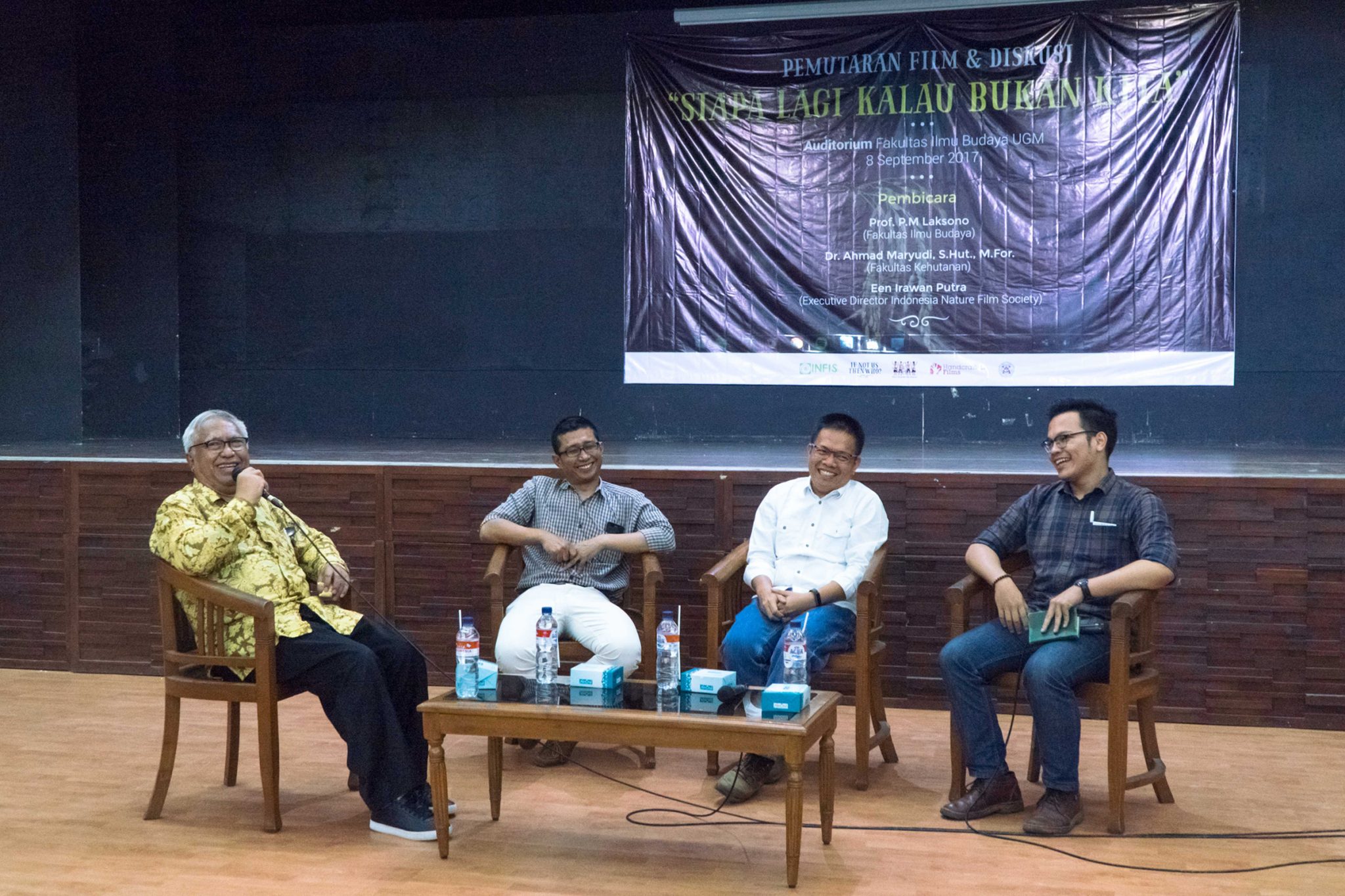Following a successful premiere of Sallombengan Seko in Palopo in August, INFIS again held a series of screening and discussions about the struggle of indigenous peoples for their rights. This time the Siapa Lagi Kalau Bukan Kita’s roadshow held a premiere and discussion in Yogyakarta. Four movies were screened in the Auditorium of the Faculty of Culture of Gadjah
Mada University on Friday afternoon (8/9); they are Sallombengan Seko, Dari Para Leluhur, Penjaga Hutan Bumi Jargaria and Harapan.
Made possible through the collaboration with Keluarga Mahasiswa Antropolog (KEMANT), the event started at 16.00, officially opened by the Head of the Department of Anthropology, Bambang Hudayana. In his opening speech, he warm-heartedly welcomed such an event and noted that the activity went in line with the vision and mission of the Department. It, according to him, would teach a lesson on scrutinizing global issues, climate change in particular. Following the premiere, Hariara Simanjuntak, a recently graduated Anthropology student, moderated a discussion. Speaking at the event, Prof. P.M. Laksono expressed his view that there are no movements without women in the struggle of indigenous people, notably in Indonesia. Having carried out a massive number of researchers into the traditional knowledge of indigenous peoples and local communities, the professor viewed women’s role is crucial in the struggle. “It’s because their role in social movements is as the spearhead or supporter, which means that social movement can grow big because of women,” he noted.
Also speaking at the event was a lecturer in Forest Management at the Faculty of Forestry of Gajah Mada University, Dr. Ahmad Maryudi. He even expressed a different view on conflicts involving indigenous people. “How forestry ideology has marginalized indigenous people becomes interesting. There has been a trend suggesting that in both conserving forests or granting forest exploitation permits for corporations, the government has ignored the rights of indigenous people,” he said. A wide range of students from various disciplines attended the event, not only anthropology students but also literature, law, engineering and forestry students. Even students from other universities were also present such as those from Institut Seni Indonesia (ISI) Yogyakarta, Universitas Islam Negeri (UIN) Yogyakarta, School of Multi-Media (MMTC) Yogyakarta and University of Manitoba, Canada.
Executive Director of Indonesia Nature Film Society (INFIS) Een Irawan Putra expressed his expectation that the roadshow to campus could secure support from academicians to help indigenous people fight for their rights. “Academicians play an important role in carrying out assessments of and researches on the existence of indigenous people in their respective areas so that they can make recommendations to their respective local governments and the Ministry of Forestry and Environment that the areas which are proven to belong to indigenous people should be excised from the state’s forest areas,”
